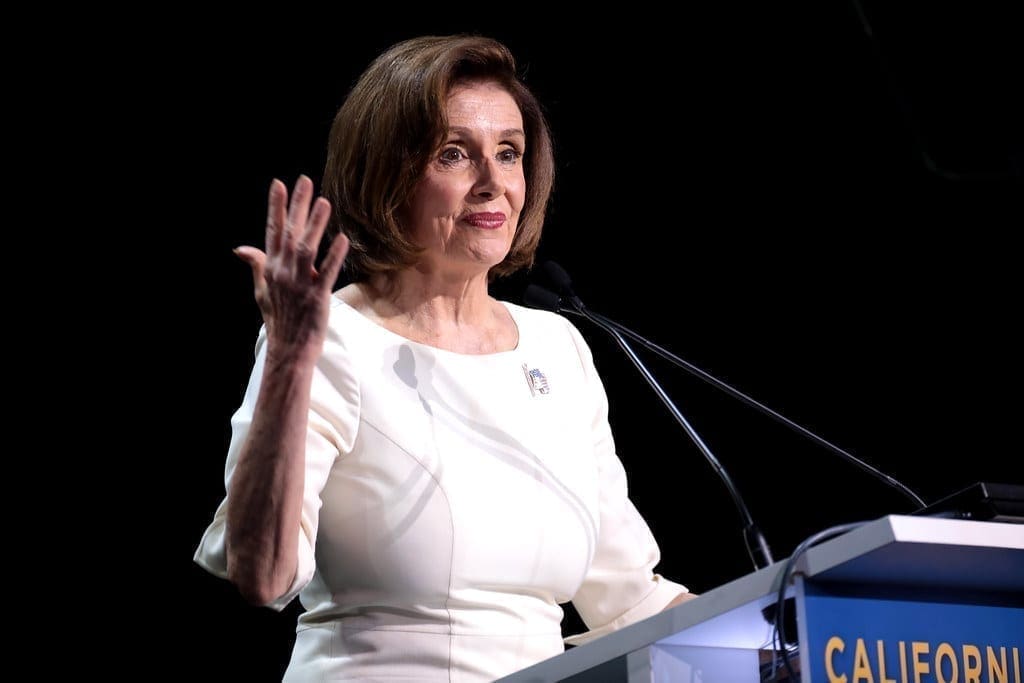Healthcare is no laughing matter in America.
According to Mike Holly of Americans Against Monopolies, U.S. healthcare spending rose from 6 percent of GDP in 1965 to 18 percent ($3 trillion) in 2013. In response, politicians have turned to their usual way of offering legislative proposals to solve this problem.

One of those proposals is the Lower Drug Costs Now Act of 2019 (H.R. 3), which has received House Speaker Nancy Pelosi’s full support. Doug Badger of the Heritage Foundation argues that H.R. 3 would “double down on the failures of existing government policies that have distorted prescription drug prices and contributed to higher health care costs.”
In effect, H.R. 3 sets up a price system where the U.S. government bases prices for state-of-the-art drug treatments on the prices fixed by other foreign governments. Badger explains that “the measure would set an upper price limit at 1.2 times a drug’s average price in six other countries (Australia, Canada, France, Germany, Japan, and the United Kingdom).” Under this legislation, the Secretary of Health and Human Services is given the power to negotiate prices below that ceiling for at least 25 drugs per year. Overall, a maximum of 250 drugs could be subject to those negotiations.
A manufacturer who declines to negotiate the price of any of its drugs would have an excise tax of up to 95 percent slapped on its revenues generated from the said product during the previous year. Badger correctly observes that “the bill represents an unprecedented exercise of raw government power.” As it stands, the government already mandates price ceilings across a wide array of programs, requiring manufacturers to pay the government rebates. Badger notes one important distinction in what this new bill would do: “It’s one thing for the government to dictate the prices it pays in programs it finances. It is quite another for the government to impose a price for a product’s private sale and to extract money from a company on a long-ago settled transaction.”
Further, Badger mentions a very valid point about the price controls present in the six countries that Pelosi’s bill seeks to emulate. Thanks to the lack of price controls in the U.S. at the moment, there is greater access to new drugs than in countries with price controls. Lower levels of drug access are no joke. An IHS Markit study found that Americans gained 201,700 life-years thanks to the increased access to new medicines. Moreover, countries with price controls also witness reductions in overall pharmaceutical research and development. Back in 1986, European firms surpassed America in R&D spending by 24 percent. After price controls were implemented, these companies ended up lagging.
In fact, by 2015, they trailed American firms by 40 percent. According to the President’s Council of Economic Advisers, price controls do save some money in the short term. However, they end up costing more money in the long term. It concluded that price controls make “better health care costlier in the future by curtailing innovation.”
Pelosi’s legislation brings back the debate on price controls, which have a long track record of failure, from Roman times to contemporary Venezuela. When governments try to disrupt the price system by setting price ceilings, they create massive distortions in the market. In the case of the pharmaceutical industry, artificially restricting the prices that companies can charge will reduce R&D and, in turn, lower the number of drugs they can bring to the market, as economist Dan Mitchell argued. This is not merely a consumer inconvenience we are potentially facing, it can be a matter of life or death for some people.

























